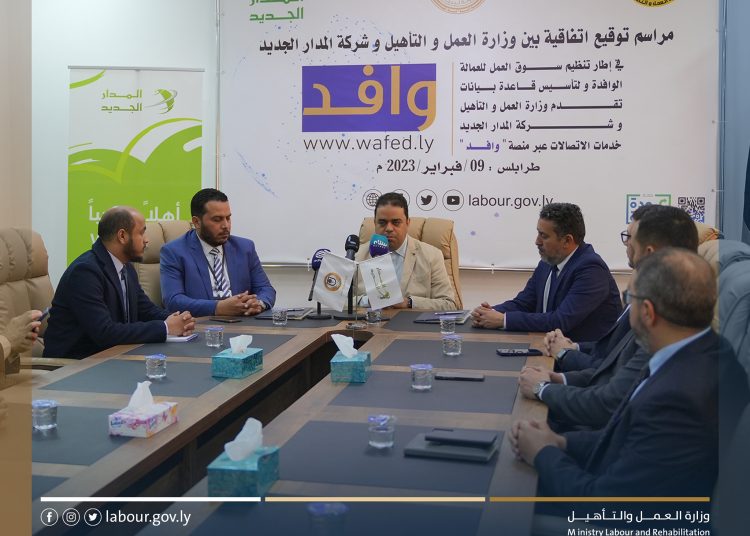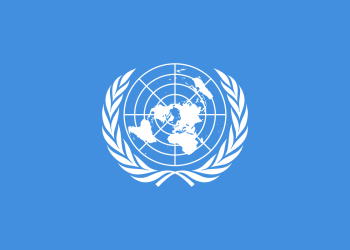The Ministry of Labour and Rehabilitation signed an agreement with Al-Madar Al-Jadeed Mobile Phone Company in Tripoli on Thursday to create a specific mobile phone bundle, the ‘‘Wafed’’ (Expatriate Package), for foreign workers.
The ministry said this comes within its policy to organise and create a database of the expatriate labour market in Libya. This applies to contracted foreign workers entering Libya officially through border crossings. It is not meant for illegal migrant workers who enter Libya by crossing the desert surreptitiously.
Based on this agreement, the Labour Ministry explained, a foreign worker will be allocated a phone number from the package when they are registered on the “Wafed” platform and in turn they will receive their SIM card upon arrival in Libya through Madar’s Service Centres.
The agreement also stipulates that Al-Madar shall allocate a central contact number for inquiries, sending guidance and awareness messages to foreign worker from the time of entry into Libya, enabling them to send requests for services and complaints.
The Ministry of Labour’s Wafed online platform
It will be recalled that in December 2021, the Ministry of Labour and Rehabilitation prepared the first version of the digital platform Wafid, which is the unified electronic services platform of the Ministry through which the procedures for recruiting foreign workers will be automated.
As reported by Libya Herald at the time, through this digital platform, the Ministry of Labour says it aims to manage foreign labour affairs in an effective and flexible manner and monitor the number of expatriate workers in the country in support of the government’s planned implementation of projects.
The Ministry of Labour says it seeks to implement strategic planning and good governance of human resources, which it says is considered one of the most important factors that will help in the success of upcoming development projects.
Analysis
The Wafed foreign labour registration website is a big step for the Ministry of Labour in its efforts to organize the flow of foreign labour into Libya. At one extreme, sub-Saharan African workers have been able to arrive in Libya without any process or restrictions. These are often part of a system guarded and operated by Libyan security forces/militias. They are often part of the illegal migrant flow to Europe and use Libya as a steppingstone enroute.
Critics say the government has overreached by forcing Libyan companies to pay health care and insurance for foreign employees. They feel that the government should have concentrated first on enshrining the process of foreign labour registration.
Equally, critics feel that if the government does not clamp down effectively on the flow of the much cheaper illegal foreign migrant workers from Sub-Saharan Africa, it would discourage the use of the more expensive and officially registered workers.
Nevertheless, for the more technically capable foreign technicians and engineers etc, the new system should prove very useful to businesses – as long as the government/Central Bank of Libya transfer the registered workers’ wages at the official exchange rate.
Labour Ministry launches Wafed website for processing foreign labour (libyaherald.com)









